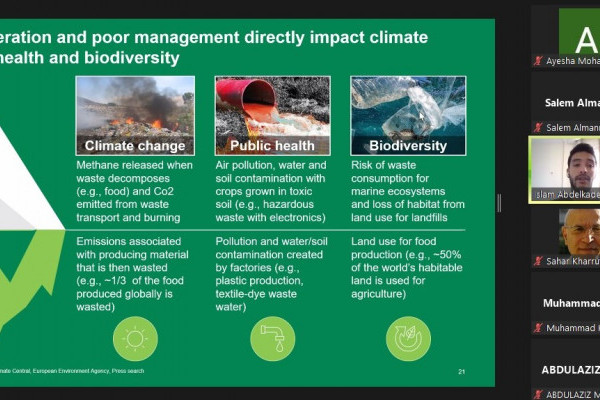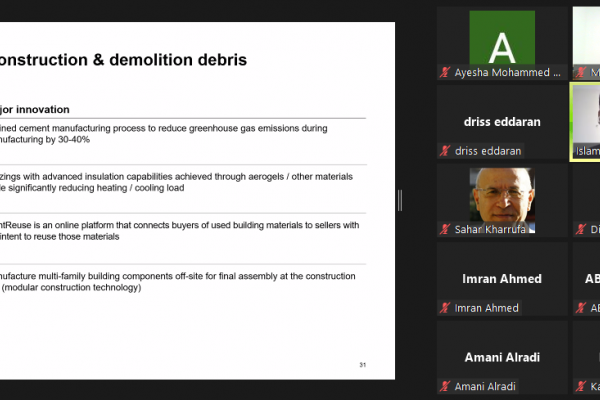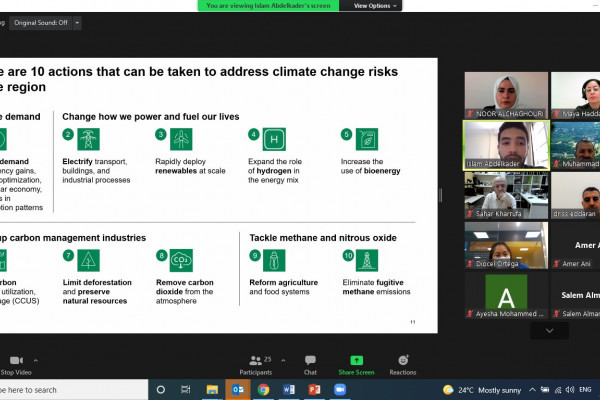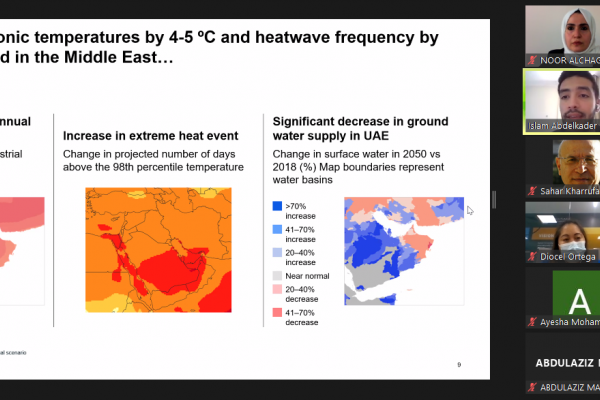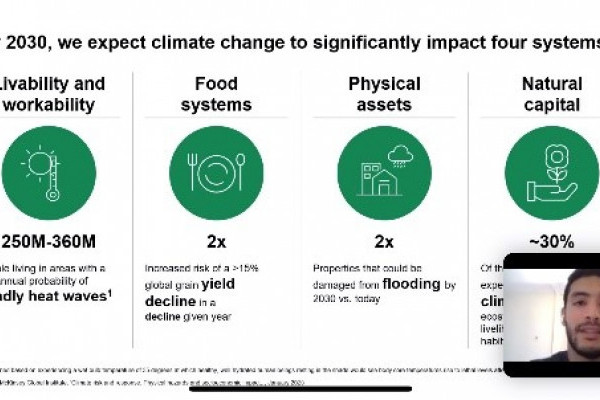Ajman University’s Sustainability and Climate Change Workshop Reveals Interesting Insights
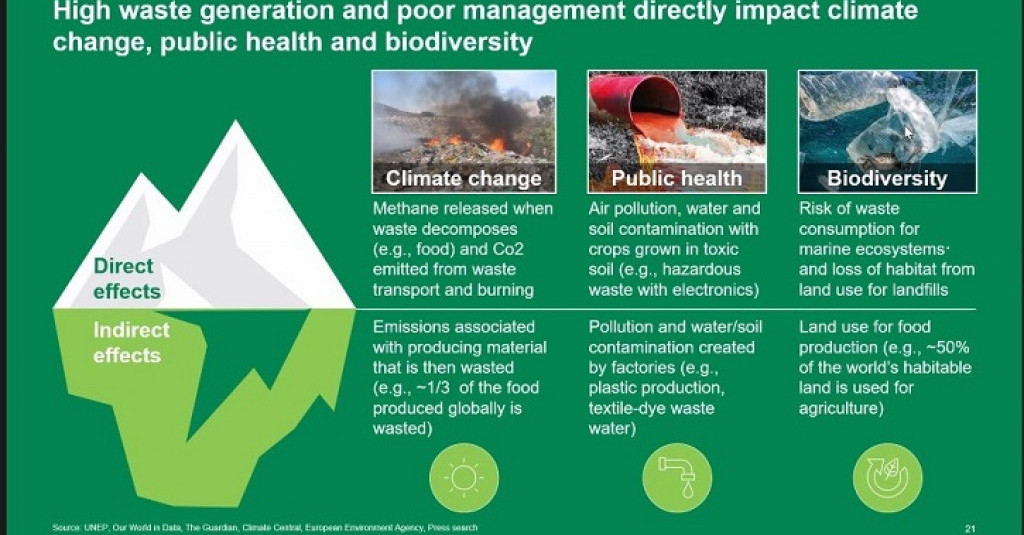
Ajman University’s Office of Community Engagement & Office of Environmental Health and Safety (EHS), in collaboration with INJAZ UAE hosted an informative webinar on Sustainability on February 2, 2022.
The initiative reflects Ajman University’s commitment to being a part of the global action to address climate change challenges in order to secure a sustainable future for the upcoming generations. In accordance with this goal, Ajman University strives to contribute in UAE’s Net Zero 2050 strategic initiative of the Paris Agreement.
Mr. Islam , Project Manager at McKinsey, and the guest speaker at the event, delivered a presentation that gave the audience amazing insights into how climate change can be tackled and sustainability encouraged. The webinar discussed the effect of climate change on the Middle East, threat of waste on human continuity and proactive measures of conservationism. Participants were educated on the UAE and GCC positioning for environmental and sustainability metrics. The audience exchanged views on optimal solutions to reduce UAE’s carbon footprint considering cost, feasibility, and time efficiency.
Sustainability impacts four systems, livability, food, physical assets, and natural capital. Mr. Islam warned that in the near future we will suffer from deadly heat waves, risk yield decline, face catastrophic floods and witness 30% of land disappearance due to deforestation. The audience was alarmed to hear that the UAE is under threat of deadly heat waves and water stress due to high Co2 emissions per capita.
Changing how we power and fuel our lives bring hopes for a greener tomorrow. To mitigate effects of climate change, we are advised to reduce demand for power generations. Emitting less greenhouse gas emissions and relying on renewable substitutes such as hydrogen as well as bio energy is crucial. He also advised on reducing GHD emissions such as methane and nitrous oxide through (CCUS), a technology that captures carbon dioxide at its source before being emitted into the atmosphere. Mr. Islam emphasized the importance of relying on circular economy where power assets are shared or leased to reduce emissions.
For large power consumers, limiting working hours may reduce demand on the grid and the accumulative power demand. Alternative solutions include encouraging and adopting entrepreneurial efforts focused on sustainability such as solar energy and recycling.
Sustainability will change the world to the better, dynamic developments are anticipated in the job and financial market. 24 million new jobs and career paths in sustainability are expected as we transition to a greener economy. Finance will be revolutionized through the adoption of sustainability and massive reductions in power consumption.
Now is the best time to go green, what’s your strategy to a greener AU? Share your ideas with the Office of Environmental Health and Safety to convert your sustainable ideas on campus, on Ehs@ajman.ac.ae
(Reported by Karen Saad Zakaria, Student, College of Business Administration)
